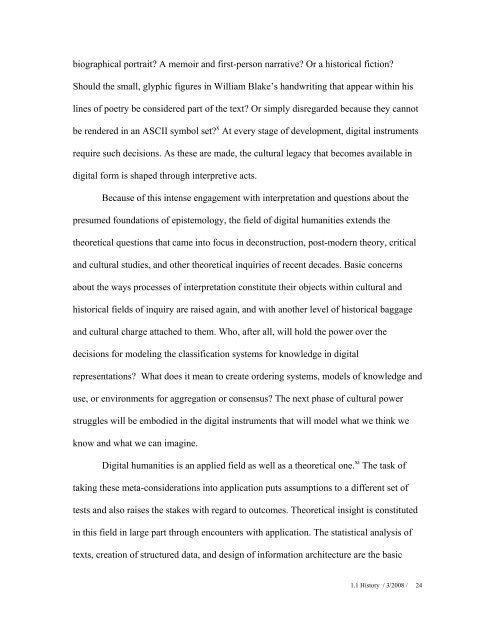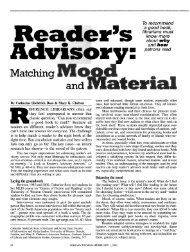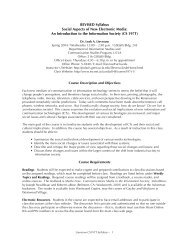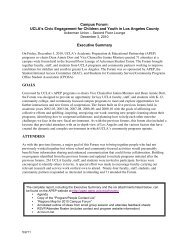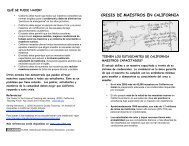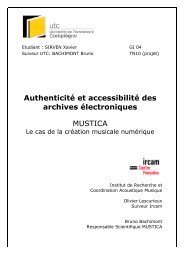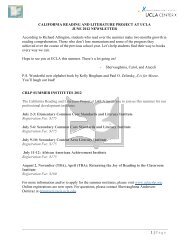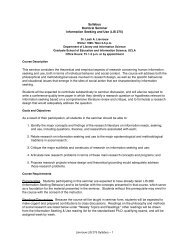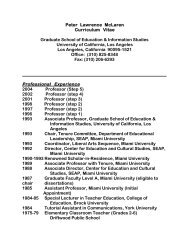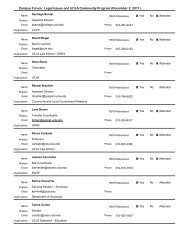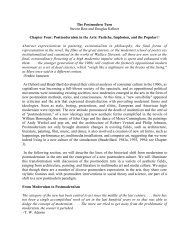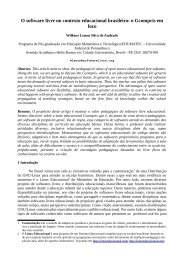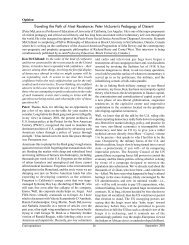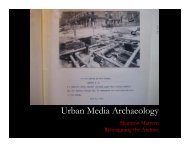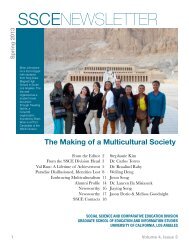1.1 From Digital Humanities to Speculative Computing - UCLA ...
1.1 From Digital Humanities to Speculative Computing - UCLA ...
1.1 From Digital Humanities to Speculative Computing - UCLA ...
Create successful ePaper yourself
Turn your PDF publications into a flip-book with our unique Google optimized e-Paper software.
iographical portrait? A memoir and first-person narrative? Or a his<strong>to</strong>rical fiction?<br />
Should the small, glyphic figures in William Blake’s handwriting that appear within his<br />
lines of poetry be considered part of the text? Or simply disregarded because they cannot<br />
be rendered in an ASCII symbol set? x At every stage of development, digital instruments<br />
require such decisions. As these are made, the cultural legacy that becomes available in<br />
digital form is shaped through interpretive acts.<br />
Because of this intense engagement with interpretation and questions about the<br />
presumed foundations of epistemology, the field of digital humanities extends the<br />
theoretical questions that came in<strong>to</strong> focus in deconstruction, post-modern theory, critical<br />
and cultural studies, and other theoretical inquiries of recent decades. Basic concerns<br />
about the ways processes of interpretation constitute their objects within cultural and<br />
his<strong>to</strong>rical fields of inquiry are raised again, and with another level of his<strong>to</strong>rical baggage<br />
and cultural charge attached <strong>to</strong> them. Who, after all, will hold the power over the<br />
decisions for modeling the classification systems for knowledge in digital<br />
representations? What does it mean <strong>to</strong> create ordering systems, models of knowledge and<br />
use, or environments for aggregation or consensus? The next phase of cultural power<br />
struggles will be embodied in the digital instruments that will model what we think we<br />
know and what we can imagine.<br />
<strong>Digital</strong> humanities is an applied field as well as a theoretical one. xi The task of<br />
taking these meta-considerations in<strong>to</strong> application puts assumptions <strong>to</strong> a different set of<br />
tests and also raises the stakes with regard <strong>to</strong> outcomes. Theoretical insight is constituted<br />
in this field in large part through encounters with application. The statistical analysis of<br />
texts, creation of structured data, and design of information architecture are the basic<br />
<strong>1.1</strong> His<strong>to</strong>ry / 3/2008 /<br />
24


